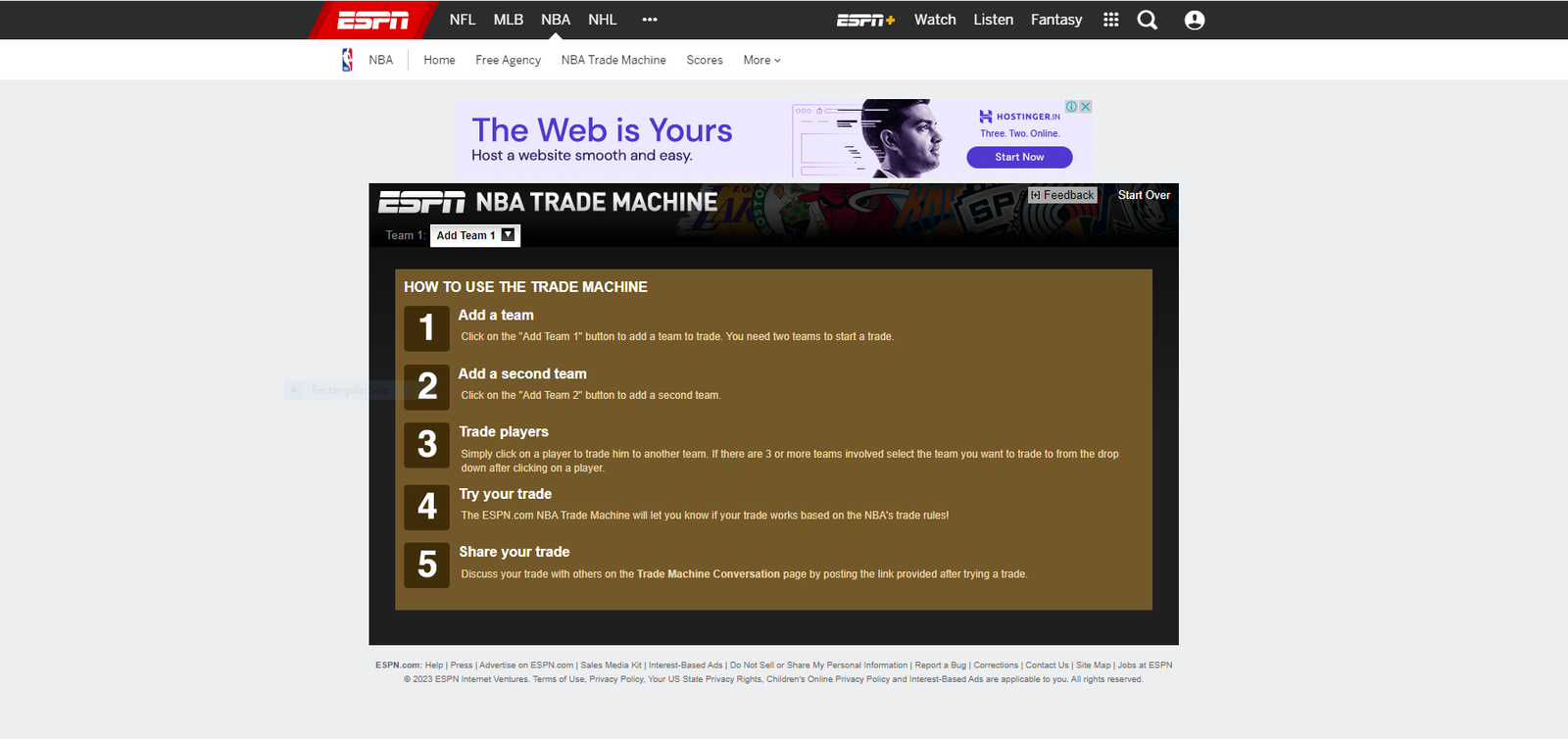The ESPN NBA Trade Machine is an online tool provided by ESPN that allows fans to create and simulate potential NBA trade scenarios. It lets users construct trades involving players, draft picks, and sometimes cash considerations. The trade machine considers various factors, such as salary cap rules and trade restrictions, to determine whether the proposed trade would be valid according to the NBA’s trade rules.
Introduction
In the fast-paced and adrenaline-pumping world of the NBA, fans are often left to speculate about potential trades, player swaps, and dream team scenarios. Thanks to modern technology, the ESPN NBA Trade Machine has emerged as a popular and exciting playground for basketball enthusiasts. This innovative online tool allows fans to become virtual general managers, creating and simulating hypothetical trade scenarios involving their favorite NBA teams. In this article, we’ll dive into the magic of the ESPN NBA Trade Machine and explore why it has become an essential part of the NBA fan experience.
The Power of Imagination
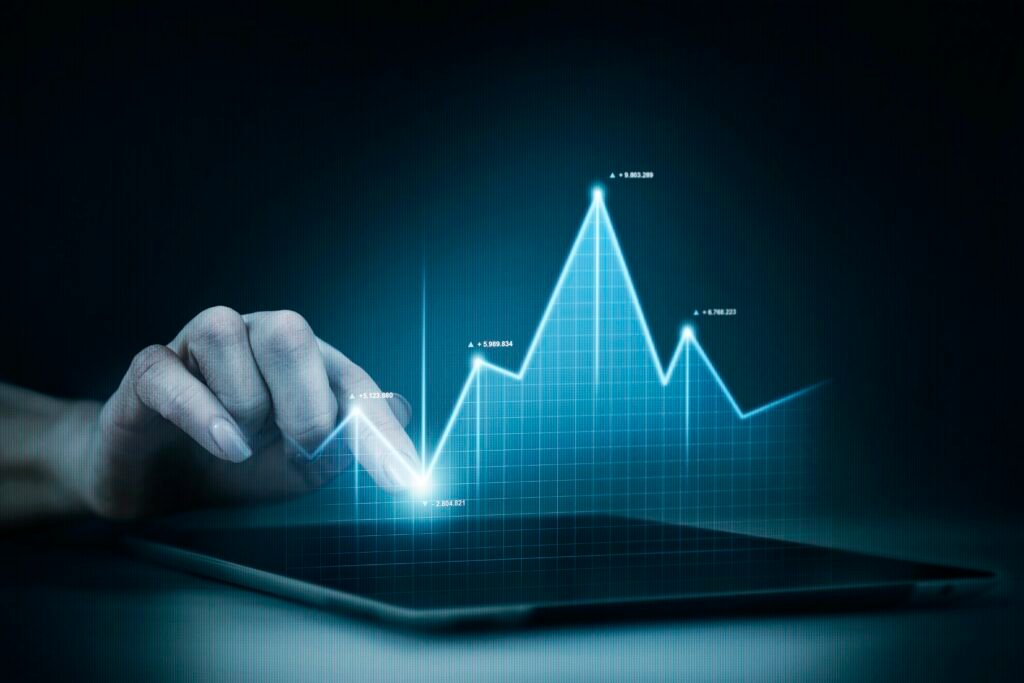
The ESPN NBA Trade Machine isn’t just a standard sports simulation tool; it’s an outlet for fans’ boundless imaginations. With just a few clicks, fans can engineer trades that bring together their favorite superstars, form unstoppable superteams, or even make transformative moves that shake up the entire league.
The trade machine empowers fans to envision exciting “what-if” scenarios that may never happen in reality but provide endless hours of enjoyment and debate among friends and fellow fans.
Mastering the Salary Cap
Behind the glitz and glamour of NBA trades lies the intricacies of the salary cap, a fundamental constraint that governs team spending. The ESPN NBA Trade Machine incorporates the salary cap rules, enabling fans to construct realistic trades that adhere to the league’s financial regulations. It’s not just about assembling star-studded lineups; the trade machine challenges users to understand the financial aspects of NBA transactions, adding an educational dimension to the fun.
Reviving Rivalries and Legendary Duos
With the trade machine, fans can revisit iconic rivalries and legendary duos from NBA history. Want to see Michael Jordan and Larry Bird team up in their prime, or pit LeBron James against Kobe Bryant? The trade machine transcends time and allows fans to create fictional scenarios that reignite the passion of past NBA eras. It’s a nostalgic trip down memory lane for seasoned fans and an educational experience for younger generations to learn about basketball legends of yesteryears.
Evaluating Impact on Teams
The trade machine isn’t just about making flashy moves; it also lets fans evaluate the potential impact of trades on teams’ performance. Fans can analyze how player additions or departures affect team chemistry, depth, and overall competitiveness. This aspect of the tool sparks lively discussions among fans, pundits, and analysts, as everyone has their unique perspective on the hypothetical outcomes.
Building for the Future
The ESPN NBA Trade Machine isn’t limited to current NBA rosters. Fans can use it to explore draft pick trades and plan for the future of their favorite teams. This feature allows fans to act as visionary general managers, making strategic moves to secure top draft prospects or build a young and promising roster for sustained success.
Here’s “ESPN NBA Trade Machine” A General Outline Of How It Works:
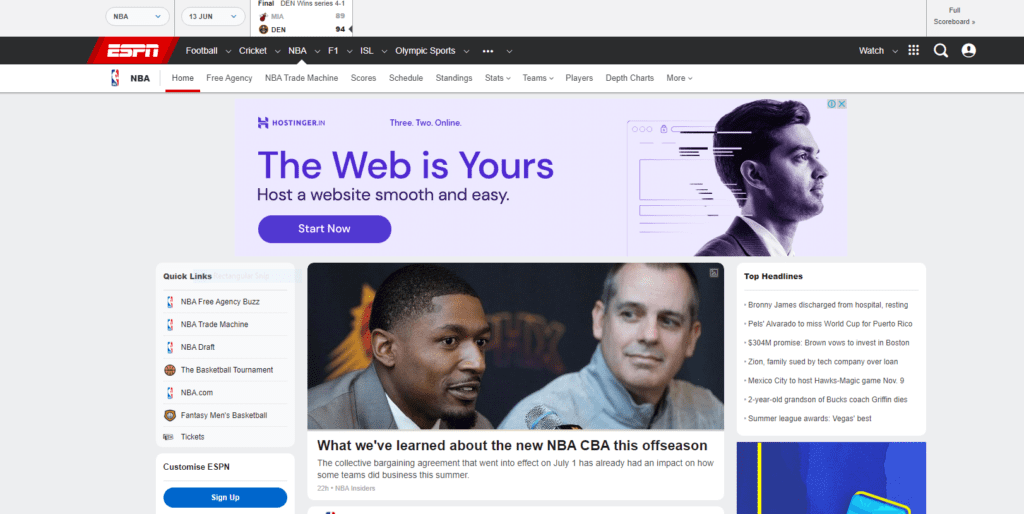
- Team Selection: You start by selecting the teams involved in the trade. You can pick up to three teams, and each team’s roster and current contracts will be shown.
- Players and Picks: You can then add players and draft picks to the trade. The trade machine will calculate the combined salary and ensure that it adheres to the NBA’s salary cap rules.
- Trade Validation: The trade machine will validate whether the trade is permissible under the NBA’s trade rules. If it follows the league’s regulations, the trade is deemed successful. Otherwise, the trade will be marked as invalid.
- Simulation: After creating a trade, you can simulate the trade to see how it might impact each team’s roster and overall performance.
It’s essential to remember that the ESPN NBA Trade Machine is purely for fun and speculative purposes. Trades in the NBA involve multiple complex factors beyond just salary considerations, such as team dynamics, player preferences, and long-term strategies. Many proposed trades may not be practical or realistic in actual NBA scenarios.
There are a few myths or misconceptions that sometimes arise regarding its capabilities. Let’s address some of the most common ones:
- Real Trades Can Happen on the Trade Machine: One of the most significant misconceptions is that trades made on the ESPN NBA Trade Machine can directly translate into real NBA trades. In reality, the trade machine is purely a simulation tool for fans to explore hypothetical scenarios. Actual NBA trades involve numerous factors, including team needs, player preferences, contract considerations, and other complexities that go beyond what the trade machine can simulate.
- All Trades That Work in the Machine Are Valid: Just because a trade works within the salary cap and trade rules in the ESPN NBA Trade Machine doesn’t mean it would be allowed in real life. NBA trades must adhere to additional regulations, such as league approval, trade restrictions, and financial implications for teams involved. The trade machine doesn’t account for these factors, so some trades that seem feasible in the simulation may not be permissible in reality.
- The Trade Machine Predicts Future Trades: Some fans mistakenly believe that the trade machine can predict future trades or rumors. However, the trade machine is not connected to any insider information or trade rumors. It merely allows fans to create and simulate their own trade ideas based on the current NBA rosters and rules.
- Player Preferences Are Ignored: The trade machine does not consider player preferences or personal factors that often influence real NBA trades. Players have no control over the trades made in the simulation, whereas in reality, their preferences, contracts, and trade clauses play a significant role in potential trade scenarios.
- Trade Machine Results Guarantee Success: While the trade machine simulates the impact of trades on team performance, it’s essential to remember that actual results may differ. The NBA is a dynamic league, and success depends on various factors, including player chemistry, coaching, injuries, and team strategies.
- Every Trade Is Balanced: The trade machine does not guarantee that all trades created are balanced or fair. While it follows the salary cap rules, it may not consider other intangible aspects that influence real trade decisions, such as the long-term vision of teams or the desire to maintain a competitive balance across the league.
However, I can speculate on potential directions or improvements that could be made to enhance the trade machine’s features and user experience:
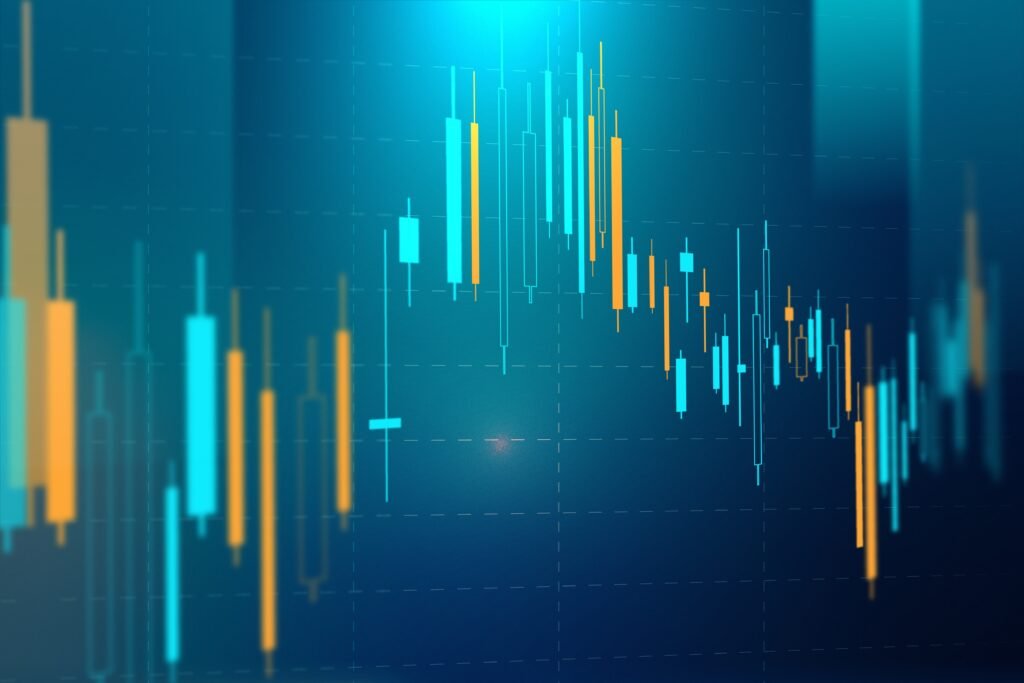
- Enhanced Realism: Future updates to the trade machine may aim to incorporate more real-world trade considerations. This could include factoring in player preferences, trade clauses, and other complexities that impact real NBA trades.
- Integration with News and Rumors: To make the experience more engaging, ESPN could consider integrating the trade machine with real-time NBA news and rumors. This could allow users to simulate and discuss potential trades based on the latest happenings in the league.
- Community Sharing and Voting: Implementing a feature that allows users to share their trade scenarios with the community and enable voting or ranking could add an interactive and competitive element to the trade machine.
- Historical Trades and Analysis: Adding a historical trades database and analysis section could provide users with insights into significant trades from the past, enabling them to learn from previous NBA trade history.
- Customizable Trade Rules: Allowing users to customize certain trade rules and settings could provide more flexibility in creating trade scenarios, accommodating different preferences and league configurations.
- Mobile App and Social Media Integration: Creating a dedicated mobile app for the ESPN NBA Trade Machine and integrating it with social media platforms could encourage more user engagement and sharing.
- Integration with Fantasy Basketball: Integrating the trade machine with ESPN’s Fantasy Basketball platform could provide fantasy players with valuable insights into potential player values and trade strategies for their fantasy teams.
- AI-Powered Trade Suggestions: Implementing AI algorithms to provide trade suggestions based on team needs, player statistics, and historical data could offer users valuable guidance in creating balanced and competitive trades.
Please note that these are speculative suggestions, and the actual future of the ESPN NBA Trade Machine may differ. To stay updated on the latest developments, it’s best to check the official ESPN website or related news sources for any announcements or improvements to the trade machine.
Here are some tips and tricks to enhance your trade machine usage:
- Understand NBA Trade Rules: Familiarize yourself with the NBA’s trade rules, salary cap regulations, and trade restrictions. Knowing the basic principles will help you create more realistic and valid trade scenarios.
- Consider Team Needs: Before making trades, analyze the needs and weaknesses of the teams involved. A successful trade should address the specific requirements of each team to improve their overall performance.
- Explore Player Values: Pay attention to player values and how their contracts impact the trade. High-value players may require more significant trade packages, while expiring contracts can provide cap relief.
- Check Trade Exceptions: Some teams may have trade exceptions, which allow them to acquire players without sending a player in return. Utilize these exceptions to create more diverse and interesting trade scenarios.
- Experiment with Draft Picks: Draft picks are valuable assets in NBA trades. Try different combinations of picks to see how they affect the trade’s success and impact on the teams involved.
- Share and Discuss: Share your trade scenarios with friends or on online forums. Engaging in discussions with other NBA fans can lead to new perspectives and exciting trade ideas.
- Explore Historical Trades: Revisit past NBA trades to gain insights into how teams have historically approached trades and how they shaped the league’s landscape.
- Balance Trades: Aim for balanced trades that benefit both teams involved. Unfair or lopsided trades might be fun for experimentation but may not be realistic or practical in real NBA scenarios.
- Be Realistic: While the trade machine allows for creative scenarios, try to remain somewhat realistic in your trade ideas. Consider the feasibility of the trade from both a basketball and financial standpoint.
- Save and Compare: Save your favorite trade scenarios to compare them later. This will allow you to see how different trades stack up against each other and decide which ones you like best.
Remember that the ESPN NBA Trade Machine is a tool for entertainment and exploration, and the trades you create are not actual transactions. Have fun, get creative, and enjoy playing the role of a virtual NBA general manager!
The main features and components of the ESPN NBA Trade Machine include:
- Team Selection: Users can choose up to three NBA teams to participate in the trade scenario. The tool allows you to select the teams you want to trade with and view their current rosters and contract information.
- Player and Draft Pick Selection: Users can add players and draft picks from the selected teams to create a trade proposal. The trade machine calculates the combined salaries of the players involved to ensure the trade adheres to the NBA’s salary cap rules.
- Trade Validation: After creating a trade, the ESPN NBA Trade Machine validates whether the proposed trade is valid based on NBA trade rules and salary cap regulations. If the trade is not allowed within the league’s guidelines, the tool marks it as invalid.
- Trade Simulation: Once the trade is deemed valid, users can simulate the trade to see the impact on the teams involved. The tool shows the updated rosters and salary cap figures for each team after the trade is executed.
- Salary Cap and Contract Details: The trade machine displays the current salary cap and contract information for each team, providing a clear overview of their financial situation.
- Trade Exceptions: The tool considers trade exceptions, which are financial mechanisms that allow teams to acquire players without matching salaries in certain situations.
- Trade History: The ESPN NBA Trade Machine has a feature that allows users to view and analyze past trade scenarios created by other fans.
- Share and Save Trades: Users can share their trade scenarios with others through social media or save them for later reference.
- Educational Resource: The trade machine serves as an educational resource, helping fans understand NBA trade rules, salary cap management, and how trades impact teams’ financial situations.
- Entertainment and Engagement: The primary purpose of the ESPN NBA Trade Machine is to provide fans with an entertaining platform to explore trade ideas and engage in discussions about potential player movements in the NBA.
Keep in mind that the features and functionalities of the ESPN NBA Trade Machine may evolve over time, and some additional features might be introduced in the future to enhance the user experience. For the most up-to-date information and access to the trade machine, visit the ESPN website or related sports sections on their platform.
If you’re interested in making money through sports or NBA-related activities, here are some alternative avenues to explore:
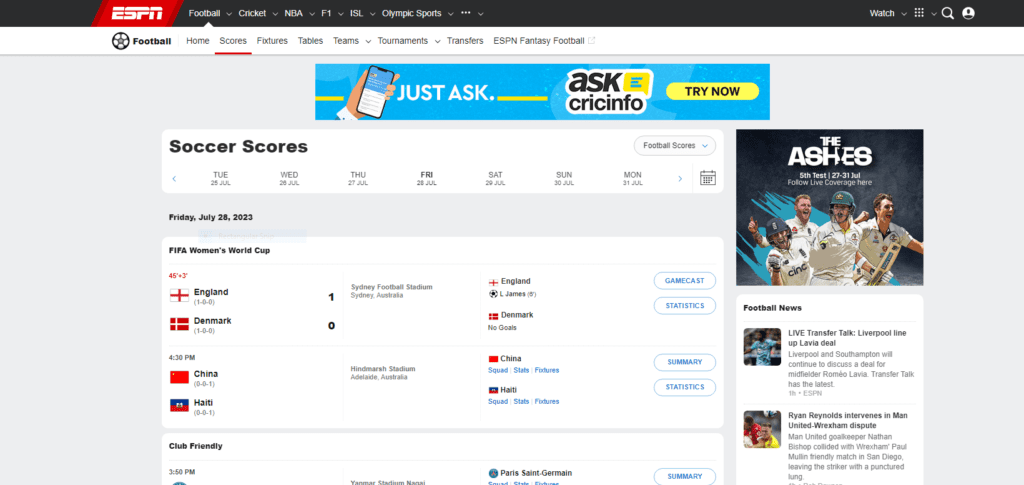
- Fantasy Sports: Participate in fantasy basketball leagues where you can draft and manage your own team of NBA players. Many fantasy leagues offer cash prizes or entry fees for winners.
- Sports Betting: Engage in sports betting, where you can place wagers on NBA games or other sporting events. However, be cautious, as sports betting involves risk, and it’s essential to gamble responsibly.
- Content Creation: If you have a passion for NBA analysis and insights, you can create content such as articles, videos, or podcasts. You may monetize your content through advertising, sponsorships, or Patreon support.
- Sports Writing: Pursue a career in sports journalism or writing. Some media outlets pay for articles or freelance contributions related to the NBA and other sports.
- Trading Card Market: In recent years, NBA trading cards have become highly valuable collectibles. Buying, selling, and trading rare or valuable cards can be a profitable venture for collectors.
- Sports Memorabilia: If you have access to valuable NBA memorabilia, such as autographed jerseys, basketballs, or other items, you can sell them to collectors or sports enthusiasts.
- eSports and Gaming: If you’re skilled in NBA video games or eSports, you can compete in tournaments or create content related to gaming. Some players and content creators earn money through sponsorships and prize winnings.
Remember that any form of making money related to sports, including the NBA, comes with certain risks and challenges. Always ensure you comply with legal and ethical guidelines, and be aware of any potential financial risks involved. Additionally, the sports industry can be highly competitive, so success may require dedication, passion, and creativity.
